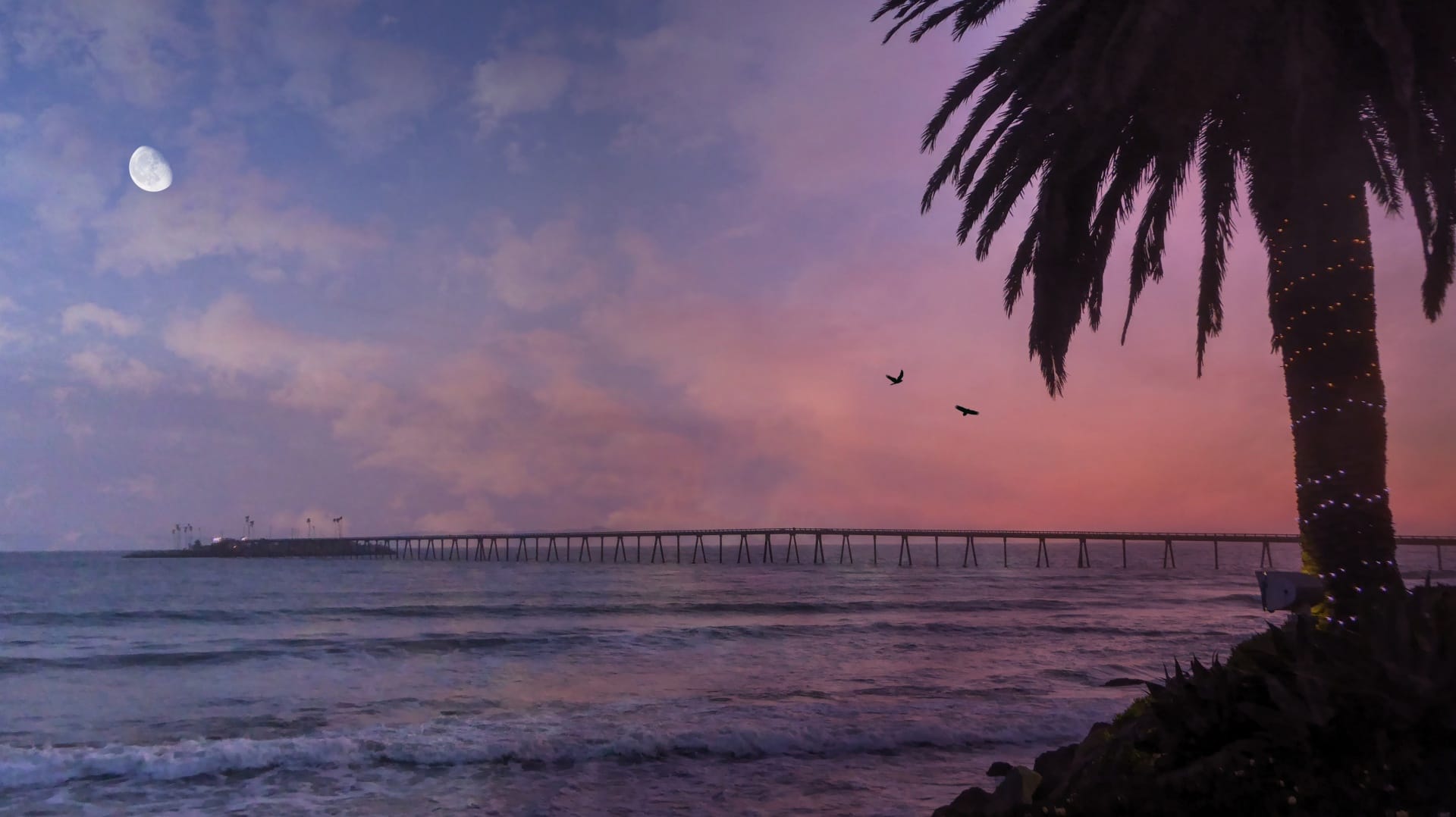In many cultures and countries, there is a belief that sleeping at sunset is not good for health and peace of mind. Those who support this idea note, first of all, headaches as a consequence of such a vacation. We decided to check whether there is scientific evidence that sleeping at sunset is harmful.
Bloggers write, that the ancient Egyptians believed in the danger of sleeping at sunset - they supposedly believed that “the chariot of the god Ra at sunset crosses the domain of the dead. And the creatures of evil can slip through the slightly open gates, so it is important to meet the sunset in a state of wakefulness in order to protect yourself.” The ancient Slavs allegedly believed, that “at sunrise the sun imparts life-giving powers to everyone. During sunset, the “hot star,” on the contrary, takes these forces with it.” Ayurveda teachesthat sleeping at sunset leads to poverty. Astrologers explain the ban on sleeping at sunset is that at this time “the brain does not fill the body with life-giving prana, but, on the contrary, dries up the energy channels.” In Islam exists the concept of “faylulya” is sleep after midday prayer until the beginning of evening prayer; such sleep is considered prohibited. In Kazakh legends sunset is the time of the battle between good and evil, so falling asleep at the moment of the decisive battle is unsafe.
In articles about the dangers of sleeping at sunset list consequences for the body: a feeling of disorientation in space, headache, dizziness, a strong feeling of thirst, tremors of the limbs, general manifestations of severe weakness, inability to think clearly. You can also meet warnings from cosmetologists that such a dream “negatively affects one’s appearance, which is especially important for women. After it, swelling appears under the eyes, wrinkles become more noticeable and the general condition of the skin and hair worsens.”
It is immediately worth noting that we were unable to find studies comparing the health status of those who slept during sunset with those who slept the same amount of time in the same lighting conditions with the sun at its zenith or going beyond the horizon. Therefore, to verify the statement, we will take into account only those arguments that usually explain the harm of relaxing at sunset. Mythological explanations like “sunset is the border between the world of the dead and the living,” as well as approaches of alternative practices that use the concepts of “prana” and “energy channels” will also remain outside the scope of this analysis. Moreover, it is worth paying attention to the fact that warnings about the dangers of sleeping at sunset most often do not specify what type of sleep we are talking about: a full night’s sleep (that is, going to bed early is dangerous) or a short nap (that is, you should not go to bed in the evening to rest for a short time). Therefore, in the analysis we will consider both options.
To begin with, it is worth noting one obvious thing: depending on the time of year and region of residence, sunset occurs at different times. For example, in Cairo the earliest sunset - at 17:00, and the latest - at 19:00 (on the days of the summer and winter solstice, respectively). In Mecca range a little different - from 17:45 to 19:07. And here is the time of sunset in St. Petersburg differs strikingly - depending on the time of year, the sun sets between 15:55 and 22:27. Only taking into account the beliefs of the Egyptians and Slavs, as well as the Islamic tradition, it turns out that almost six and a half hours (this is not yet taking into account other time zones) should be unsuitable for sleep. At the same time, scientific evidence suggests that sleep during this period can be beneficial. So, falling asleep between 22:00 and 23:00, according to data British scientists, reduces the risk of cardiovascular pathologies. Moreover, this particular time for a St. Petersburg resident in the summer will be the time of sunset. When it comes to daytime rest, sleep medicine specialist Christopher Winter believesthat the ideal time for this is around 15:00, which for the same St. Petersburg resident in winter will again almost coincide with sunset. So, at a minimum, residents of northern latitudes should definitely not classify the period from 15:55 to 22:27 as definitely unhealthful for sleep.
Explaining the potential harm of sleep at sunset, usually the first thing that comes to mind is the sleep hormone - melatonin. They argue this way: in the gloomy light of sunset, the body is not able to produce it in sufficient quantities. Melatonin really produced in complete darkness, its production rises on average two hours before bedtime, and the peak have to for the period from midnight to 3 am. At the same time, the melatonin production curve for each person is largely stable and does not change sharply with a one-time change in the usual schedule, that is, once you decide to take a nap for half an hour in the evening, you will not be able to disrupt the melatonin cycle. Moreover, during the sunset hours of central Russia (from 16 to 22) there is usually a phase with low levels of melatonin production.
Much more harmful than evening sleep on melatonin production is the so-called light pollution - excessive artificial lighting in the evening and at night. According to calculations scientists of the National Oncology Center named after N. N. Petrov, 62% of the planet’s population suffers from it. Moreover, the production of melatonin influences not only the light outside the bedroom window (which can be adjusted with blackout curtains), but also other light sources: for example, indicator lights on technology, as well as the use of gadgets before bed. It turns out that the sunset twilight is by no means the most terrible obstacle to hormone production.
Another argument concerns napping at sunset, allegedly it can interrupt a full night’s sleep, and therefore is harmful. However, not everything is so simple here either. AND Russian, And foreign Scientists agree that such sleep should be quite short - from 10 to 60 minutes. Longer rest can cause various types of ailments. The duration of sleep that corresponds to the recommendations of scientists, even during sunset hours, will not disrupt the night’s sleep schedule, but will give the body the necessary rest. At the same time, we can conclude that sleeping two to three hours in the evening will indeed cause discomfort, but this will be due not so much to the wrong time for rest, but to its too long duration.
Finally, a word of caution against sleeping at sunset. concern that if a person who has rested well during the night tends to fall asleep too early, this may indicate possible health problems. However, from the point of view of formal logic, this does not indicate the dangers of sleeping at sunset, but rather the possible causes of drowsiness itself. Chinese scientists analyzed 20 cohort studies of the association of daytime sleep with the risk of cardiovascular disease and death from all causes. They concluded that long naps (more than an hour) during the day were associated with a 30% increased risk of death from all causes, as well as an up to 36% increased risk of cardiovascular disease. At the same time, the study notes that the data obtained is not enough to characterize this relationship as cause-and-effect; an inverse relationship is also quite possible - people whose health is initially worse need more rest. Therefore, sleeping at sunset may well not be the cause of health problems, but a marker of them.
At the same time, there are those who believe that falling asleep at sunset is natural for a person, because in the days before the invention of electric light, people had to go to bed at this moment. However, it is impossible to say for sure whether our ancestors went to bed at dusk or not. Roger Ekirch, professor of history at Virginia Tech, in 2001's When the Day Ends described so-called segmented sleep: according to his data, our ancestors went to bed at sunset, stayed awake for several hours in the middle of the night and fell asleep again. He found more than 2,000 evidence of such behavior in diaries, court records and literature. At the same time study three peoples living in Africa and South America in conditions of hunting and gathering and without such a benefit of civilization as electricity, refutes the hypothesis that all people used to go to bed literally at sunset. An analysis of the sleep patterns of volunteers from these tribes showed that the average bedtime was approximately 3.3 hours after sunset. That is, it is also impossible to unequivocally call sleep at sunset traditional and natural for a person.
Thus, sleep itself during sunset hours cannot harm the body. However, there are many factors to consider: from different sunset times at different times of the year to general medical recommendations regarding the duration of naps, as well as your own rhythm of life.

Misconception
Read on the topic:
- Is it true that sleeping on your left side is harmful to your health?
- Is it true that sleeping too much is bad for you?
If you find a spelling or grammatical error, please let us know by highlighting the error text and clicking Ctrl+Enter.






